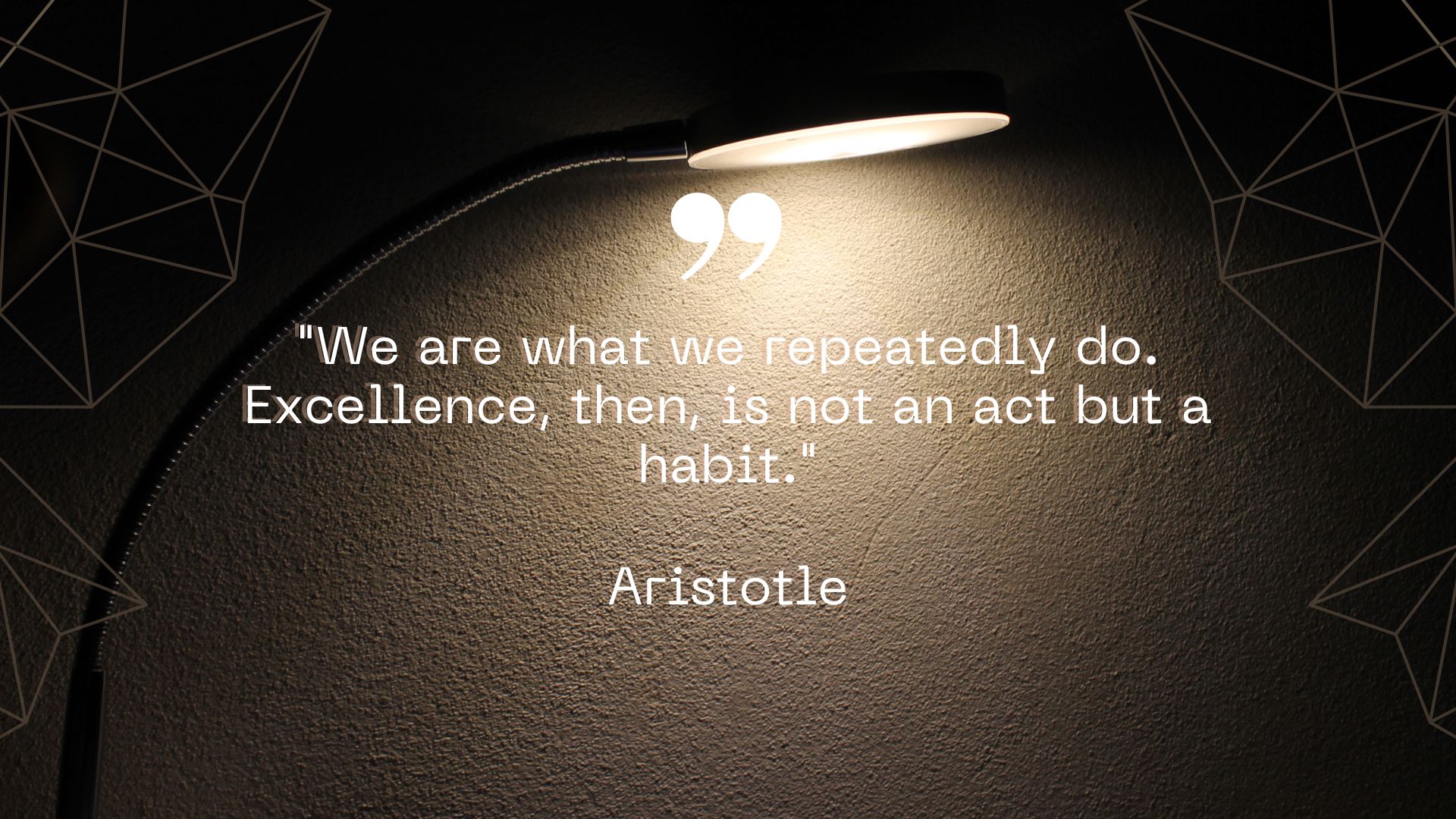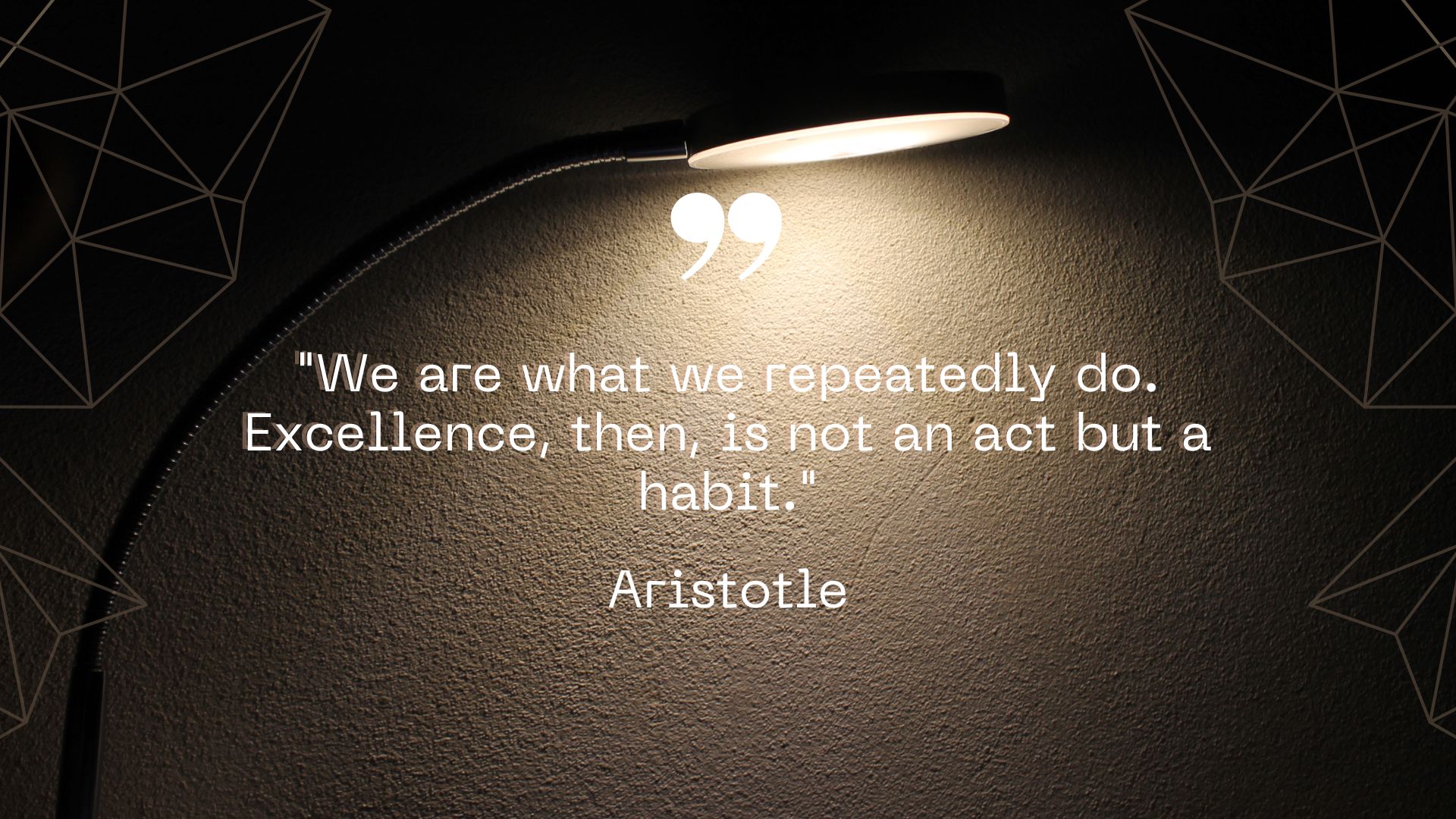“We are what we repeatedly do. Excellence, then, is not an act but a habit.”
Aristotle–
Aristotle, one of history’s most influential philosophers, bestowed upon us a timeless insight into the nature of excellence and its relationship with habits. His famous quote, “We are what we repeatedly do. Excellence, then, is not an act but a habit,” encapsulates a profound understanding of human behavior and achievement. In this exploration, we delve into the layers of meaning behind this quote and unravel the significance of habits in shaping our pursuit of excellence.
The Essence of Repetition: At the core of Aristotle’s assertion lies the concept of repetition. Human beings are creatures of habit, and our actions are a reflection of the behaviors we repeatedly engage in. By acknowledging that we are the sum of our consistent actions, Aristotle prompts us to recognize that our daily choices contribute to the formation of our character and capabilities. Repetition creates a pathway to mastery, enabling us to refine our skills and attitudes over time.
Transcending Singular Acts: Aristotle’s distinction between “act” and “habit” is a pivotal revelation. While an act may showcase excellence in a particular moment, true excellence is not a fleeting occurrence. Instead, it emerges as a result of ingrained habits that lead to consistent high performance. This contrast challenges the notion of excellence as a singular event and encourages us to embrace a more enduring approach to self-improvement.
Habituation and Virtue: In Aristotle’s ethical framework, virtues are integral components of human flourishing. He suggests that excellence is intricately linked to virtue, and virtues are cultivated through habitual practice. By engaging in virtuous actions repeatedly, we mold our character and foster a disposition toward excellence. Aristotle’s perspective highlights the profound interplay between habits, virtues, and the attainment of excellence in various aspects of life.
The Blueprint for Achievement: Aristotle’s wisdom offers a blueprint for achieving greatness. Rather than relying solely on sporadic bursts of brilliance, he encourages us to design our lives around constructive habits. By consistently channeling our efforts into actions that align with our goals, we pave the way for continuous improvement and outstanding outcomes. This blueprint underscores the transformative potential of disciplined habits.
Conclusion: Aristotle’s declaration that “We are what we repeatedly do. Excellence, then, is not an act but a habit” remains an enduring beacon of insight. It calls us to embrace the power of habits as the cornerstone of excellence, urging us to infuse intentionality into our daily routines. By understanding and implementing Aristotle’s teachings, we unlock the potential to shape our character, capabilities, and achievements through the consistent cultivation of virtuous habits.




